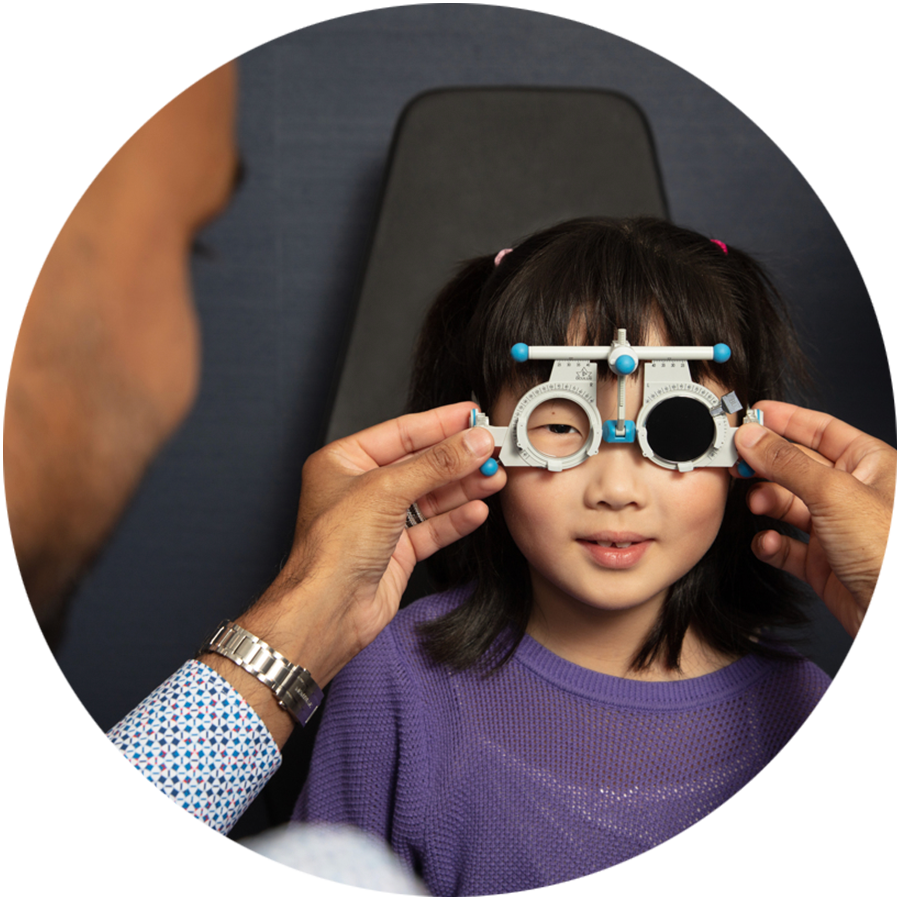Myopia Control Melbourne
Looking for myopia treatment in Melbourne?
Book with Vision Camberwell for comprehensive myopia management.
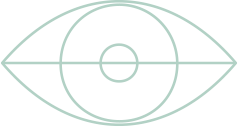
Looking for myopia treatment in Melbourne?
Book with Vision Camberwell for comprehensive myopia management.

FIG 1.
Orthokeratology Lenses

FIG 2.
Dual Focus Soft Lenses
FIG 3.
Atropine Eye Drops

FIG 4.
Spectacle Lenses
FIG 5.
Repeated Low-level Red-light
Myopia is often known as short-sightedness, a common eye condition where distant objects appear blurry while near objects are clear. You’ve probably noticed it when trying to read a road sign or watch TV. The science behind it? It primarily occurs when the eyeball grows too long in relation to the power of the eye, causing light to focus at a point in front of the retina rather than directly on it.
While the precise cause of myopia remains unclear, both genetic and environmental factors play crucial roles. Children with parents who have myopia are at a higher risk of developing the condition. But it’s not just genetics. Recent research suggests a strong correlation between myopia development and lifestyle factors such as intensive near work—like reading or using digital devices—and a lack of time spent outdoors.
Myopia severity can vary, with some cases reaching extreme levels known as Pathologic Myopia or Myopic Degeneration. A refractive error greater than -6 is a commonly used threshold for high myopia.
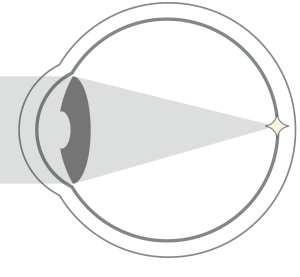
FIG 1.
Normal Eye
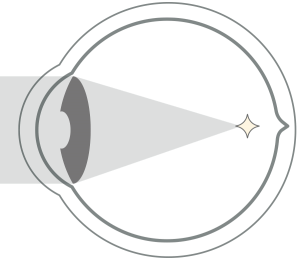
FIG 2.
Myopic Eye
In adults, myopia often presents as difficulty seeing distant objects clearly while close-up vision remains sharp.
Common symptoms include squinting, eye strain, and headaches, particularly after activities that require focusing on distant objects, such as driving or watching a movie.
Adults with myopia may also notice a need to hold reading material closer than usual to see it clearly.
If left uncorrected, myopia can significantly impair daily activities and overall quality of life. Myopia control in adults is essential to manage its progression and reduce associated risks, including potential complications like retinal detachment or glaucoma. Regular eye examinations are crucial for early detection and effective management strategies.
Book your comprehensive examination today at Vision Camberwell.
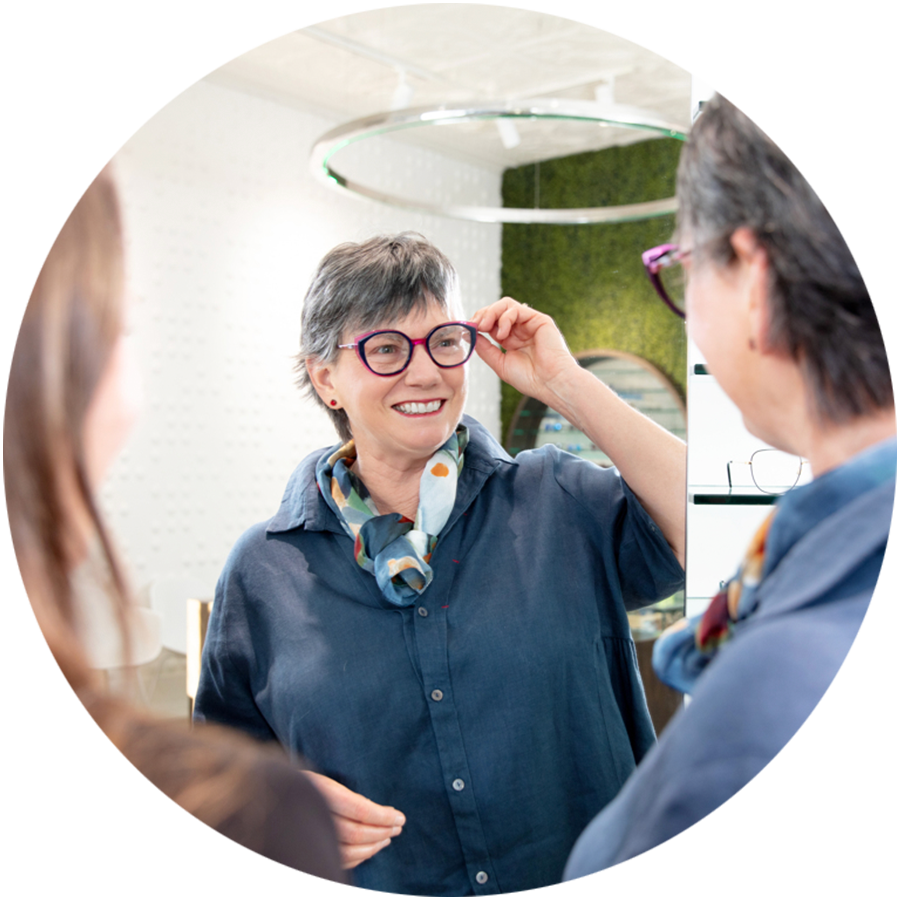
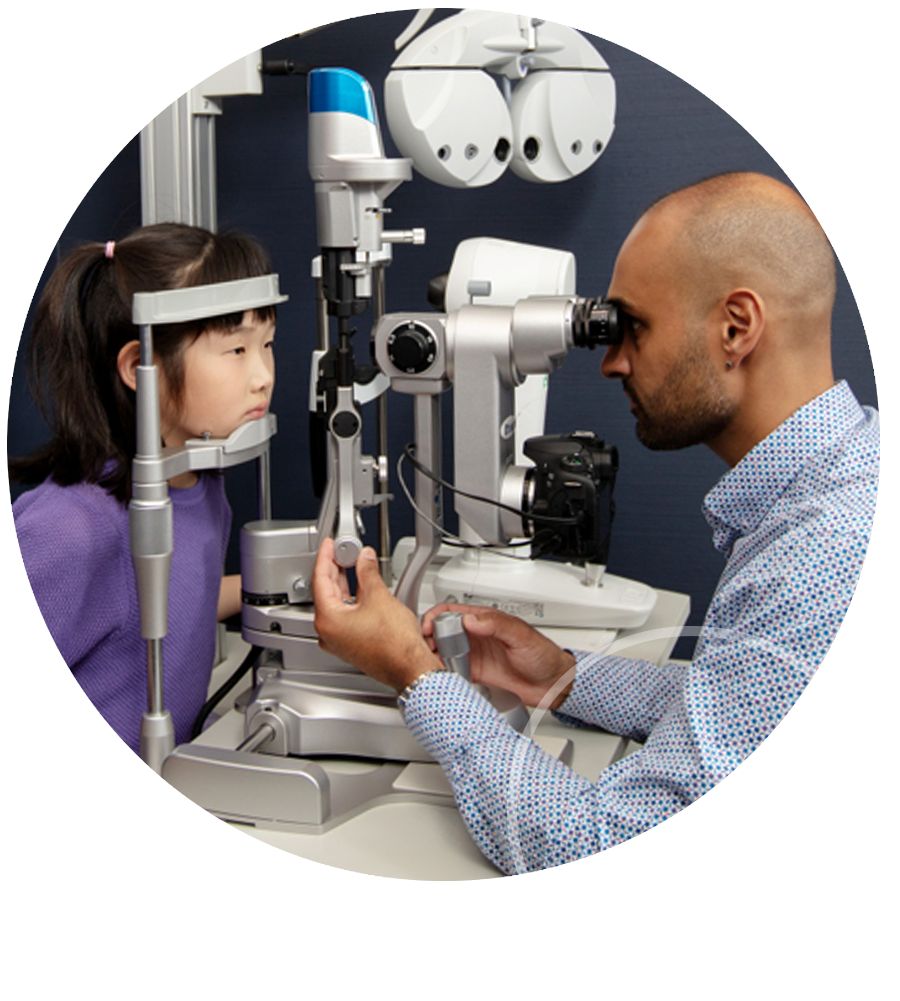
In children, myopia often manifests as difficulty seeing distant objects clearly, while near vision remains unaffected.
Signs of myopia in children include squinting, frequent rubbing of the eyes, sitting very close to the TV or board in class, and complaining of headaches or eye strain. Children might also show a lack of interest in activities that require clear distance vision, such as playing sports.
Early detection through regular eye exams is crucial to manage myopia effectively and prevent it from worsening, ensuring proper visual development and academic performance.
At Vision Camberwell, we offer a comprehensive eye examination, including a refraction assessment, measurement of the length of the eye and eye health examination to slow myopia progression in children.
While there’s no outright cure for myopia, there are multiple myopia management and myopia control treatments available to manage this condition and slow its progression.
Our optometrists at Vision Camberwell may prescribe specially designed glasses with lenses for short-sightedness, which are fitted with myopia prescription glasses designed to correct vision and manage the progression of the condition in both adults and children. Our myopia control glasses, including specialised myopia control spectacle lenses, work by altering the way light focuses on the peripheral retina, thereby reducing the stimulus for eyeball growth.
Contact us to see how our optometrists can help you with your myopia management lenses in glasses.
Contact lenses have become a popular and convenient tool in managing myopia. Myopia lenses, including specialised myopia control lenses, provide an effective solution for slowing the condition’s progression. Contact lenses for myopia offer an alternative to traditional glasses, which may be heavy, bulky, or uncomfortable for the wearer.
Additionally, the non-invasive nature of myopia control lenses, especially in the form of contact lenses for myopia, makes them a preferable option for many individuals seeking to manage their myopia effectively.
Specialised contact lenses, such as orthokeratology (Ortho-K) lenses and multifocal lenses, are designed to reshape the cornea or alter the way light focuses on the retina, respectively.
Our Orthokeratology Melbourne services provide Ortho-K lenses that are worn overnight, temporarily reshaping the cornea to reduce myopia during the day. Meanwhile, multifocal lenses are worn during the day and help focus light in a way that reduces the eye’s tendency to elongate, a key factor in myopia progression.
By consistently wearing these lenses, patients can experience significant benefits, including improved vision clarity and a reduced risk of developing severe myopia-related complications later in life.
Myopia is not a stagnant condition. Especially in children, myopia often progresses over time, requiring frequent updates to glasses or contact lens prescriptions.
It’s more than an inconvenience though — myopia control is crucial because myopia increases the chance of severe eye conditions like cataracts, glaucoma, myopic maculopathy, and retinal detachment. These risks escalate as the level of myopia increases, and controlling myopia is essential for reducing the risk of developing sight-threatening conditions and potential blindness. The sooner we can detect and implement myopia control strategies, the better the long-term eye health outcome.
Research suggests that genetics play a significant role, as children with myopic parents are more likely to develop the condition. However, environmental factors such as prolonged work in front of screens and limited outdoor time also contribute to its progression.
Myopia control lenses are specialised optical devices designed to slow the progression of nearsightedness, particularly in children and adolescents. Unlike standard single-vision lenses, they use advanced designs to reduce eye elongation, a key factor in myopia progression. Options include multifocal contact lenses, orthokeratology (Ortho-K) lenses worn overnight to reshape the cornea, specialised spectacle lenses like MiYOSMART or Stellest, which use defocus technology, or Repeated Low-Level Red Light (RLRL) Therapy.
Myopia glasses prices vary depending on the severity of the condition. To get a best estimate of price, visit us at Vision Camberwell and speak to one of our optometrists.
While there’s currently no cure for myopia, various treatment options are available to help manage the condition and slow its progression.
Contact lenses can be highly effective in controlling myopia, particularly in children and adolescents. Studies have shown that these lenses can significantly reduce the rate at which myopia progresses, helping to maintain better vision and reduce the risk of developing severe myopia-related complications later in life. Regular use, combined with professional monitoring, enhances their effectiveness in managing myopia.
Myopia (nearsightedness) causes distant objects to appear blurry due to light focusing in front of the retina, often from an elongated eyeball or curved cornea.
Hyperopia (farsightedness) makes close objects blurry as light focuses behind the retina, typically from a shorter eyeball or flatter cornea. Both conditions can be corrected with glasses, contact lenses, or surgery.
While there are no glasses specifically designed to prevent myopia, certain types of glasses and lenses may help manage further myopia progression in children and adolescents.
Regular eye tests & visits to your optometrist is key to detecting and managing myopia early.
It’s time to take the next steps towards improving your vision.
Here’s what you can do:
